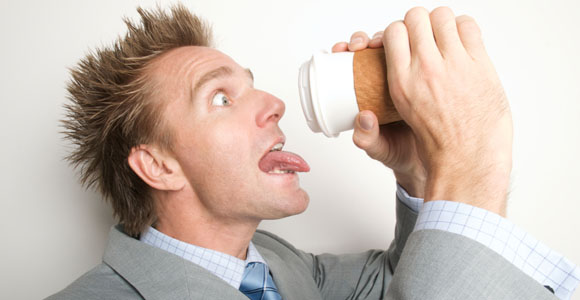Caffeine Myths Busted by Science
Do you long for coffee at the crack of dawn as soon as you get up in the a.m.? Required a Coke in the mid-day? High levels of caffeine has a bad track record, yet is it a myth? Keep reading for some fascinating (and also somewhat unusual!) high levels of caffeine truths …
Myth or Fact? Caffeine is addicting.
Misconception: Although high levels of caffeine is considered a mild energizer, it’s not addictive, according to the American Journal of Alcohol and drug Abuse.
Unlike timeless stimulants– think drug and amphetamines– there’s rarely a strong compulsion to make use of high levels of caffeine.
However high levels of caffeine can be addictive. That’s why you could really feel light withdrawal symptoms if you miss your morning cup of coffee or mid-day catalyst. Normal signs and symptoms include frustration, restlessness and irritability.
Need to you choose to quit caffeine, do not go cool turkey; rather, gradually decrease your consumption over a week.
Really however, why trouble? Researches play modest high levels of caffeine consumption really improves your mood as well as improves awareness.
For grownups, the American Dietetic Association suggests no greater than 200 mg to 300 mg a day, which amounts to 2-3 mugs of coffee.
Myth or Fact? Caffeine can make heart disease worse.
Myth: Doctors often tell cardiac patients, especially those with high blood pressure, to avoid caffeine. But there’s little proof that it raises the risk of heart attack, sudden death or abnormal heart rhythms.
In fact, coffee drinking may reduce risk of heart disease — one of the benefits of caffeine.
People who drank 3-5 cups of coffee a day had the lowest risk of cardiovascular disease, according to a 2013 meta-analysis by Harvard University.
Drinking tea – black and green – may also have heart-healthy benefits.
“Tea in general seems to have cardiovascular benefits,” says Dr. Messerli, also a cardiologist and director of hypertension at St. Luke’s-Roosevelt Hospital Center in Manhattan.
“The benefits of tea are probably due to its antioxidant properties,” he says.
But not all teas are created equal. Herbal ones, such as chamomile, rosebud and elderberry, don’t have the same antioxidants.
Plus, “when you add cream or milk, you may abolish the benefits,” Dr. Messerli says, “because it seems that the milk or the cream prevents the antioxidant substance from acting.”
Myth or Fact? Caffeine heightens hypertension risk.
A little bit of both: Caffeine does cause a small, short-term boost in blood pressure, but it’s nothing serious, Dr. Messerli says, and has no lingering health effect.
In fact, a Harvard University Medical School study of 155,000 female nurses found no link between a decade of coffee drinking – with or without caffeine – and an increased risk of hypertension.
Caffeinated colas did increase the risk, but that could be due to the sugar and other ingredients in sodas, not the caffeine. Tea drinking received mixed results.
As for men, a 33-year-long Johns Hopkins University study of more than 1,000 participants revealed that coffee played almost no role in hypertension risk.
Myth or Fact? Caffeine causes hyperactivity in children.
Myth: A kid on a Coke rush will practically bounce off walls. But studies show that a moderate amount of caffeine (40 mg to 200 mg) doesn’t make them hyperactive. (For reference, that 12-ounce can of Coke has 35 mg.)
Like adults, kids will get an energy boost from caffeine. But whether it’s soda, green tea or coffee, “on average, one serving a day wouldn’t be considered harmful overall for children,” says Suzanne Sheres, a pediatric clinical dietitian at Nemours Children’s Clinic in Orlando.
A bigger concern is the empty calories in soda and high-energy drinks that teens like, she says.
In fact, small amounts of caffeine may help children diagnosed with attention-deficit hyperactivity disorder (ADHD). It can sharpen their focus and stimulate them to answer questions, Sheres says.
So far, long-term studies haven’t shown whether it’s more beneficial to use caffeine than medication.
 Bizzee Health and Fitness Explores Caffeine
Bizzee Health and Fitness Explores Caffeine
Myth or Fact? Caffeine comes with calories galore.
Myth: On their own, coffee and tea have no calories or fat.
It’s the flavored syrups, whole milk and cream that turn innocent caffeinated drinks into calorie bombs. Those tasty blended drinks can contain 200-600 calories.
And the creamers found in many offices? Two tablespoons can add 80 calories and four grams of fat – equal to a pat of butter.
To cut calories, choose the smallest serving, either 8 or 12 ounces.
Order your beverage with fat-free or skim milk and skip the syrup, whipped cream and sprinkles!
For more info on this story click here
For more Bizzee Health & Fitness articles






